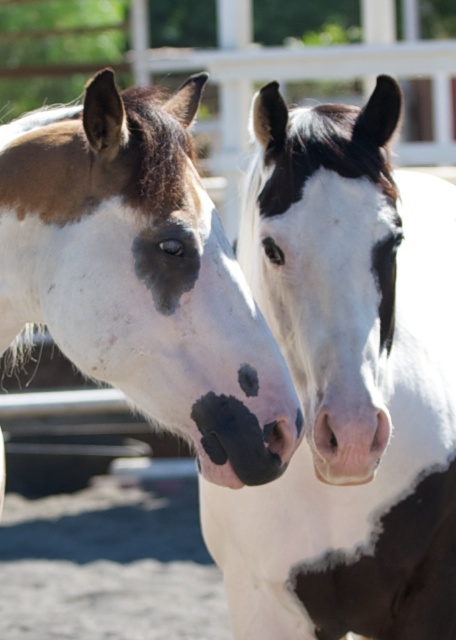They say that the human being learns more during the first year of life than any other year. While I wouldn’t be one to debate scientists or developmental psychologists, I think that my greatest learning has occurred more in the last five years than in my entire lifetime. There are many people that should be thanked for having a stake in the success of Red Bucket, and for helping us grow in our ability to care for our horses: farriers, trainers and veterinarians who teach, coach and take our calls long after Emily Post would deem appropriate. What we have learned has run the gamut from diagnosing illnesses, treating wounds, bandaging, training and beyond. We have learned to give an IV injection in a darkened stall under duress, handle a feral horse, and deliver a foal. We have learned to take a deep breath, gather conscious thought and step up to the plate, and we have learned when to call a vet. The laundry list is still growing with a trajectory that keeps us humble, open and inquisitively questioning.
During the last five years, I have also learned that horses cry. This reality drives me daily, keeps me awake at night, and spurs me into a myriad of activities designed to help save as many horses as we possibly can. I have also become more behaviorally aware as it pertains to the nuances in horse behavior. Perhaps the most poignant and charming have occurred during our “weaning week.” We certainly tried halfheartedly to avoid the inevitable weaning, but orchestrated a plan to minimize the upset that our mothers and babies were likely to experience. Nalah, who is safe for the very first time in her life, was to remain in her stall, a safe haven, nestled between friends, where she could continue to have both her routine and daily reinforcement that she is safe, secure, and permanent.
The dust and drama of the first few days was not insignificant. The “nursery” is nestled in a large covered paddock between “the paint department” housing Mozart and his buddy Cody Oats on one side, and Harlow, a longtime lover of anything baby on the other side. The paddock was chosen to meet the needs of our babies who tended to take frequent daily naps, with plenty of sunny area for the donkeys Coco and Baby Joey to stretch out and absorb heat from the ground and the warmth of direct sunlight. The wide stall covering and deep bedding provides a cozy bed for our little Winni who enjoys both shade and the softer things in life. The stall’s open exposure to other horses was deliberate in our intent to provide both visual and nose-to-nose contact. The night times were all around the hardest. Winni would call to her mother, pleading to be returned to her side. The donkeys were the most persistent; Coco started it, calling for Fern, who answered, causing Baby Joey to cry for Lizzie. Perhaps it was our Patriarch, Elliot, who surprised us the most. For well over a week with my window cracked, he filled my room with long pleading bellows for the little ones that had been removed from the family herd.
The stoicism of horses can be easily misunderstood or missed entirely. Galway came to us wearing a lifetime of abuse and callous mistreatment like a heavy cloak of armor. A branded Hanoverian, he had been used and abused by the same owner who dumped him at the kill auction, and turned her back the same way that she turned her back on his silent cries. He had walled himself off so completely that grooming his large old body translated into the tactile experience of grooming a cinder block wall…until I left the stall. The cry came from the depth of a cavernous place, more protected than a bomb bunker buried beyond the reaches of anything that could possibly harm its occupants. The sound started with the far off rumble of a train and built to a soft rolling crescendo of a mourning parent grieving the tragic loss of a child. My touch, or just really being touched, had released a torrent of emotion so locked away that the release nearly rumbled the foundation of his stall. I hastily returned, having dropped the soft brush that I had been gripping, and with intimacy of gentle fingers rubbed his tight old neck and back, massaging years of pain, longing, abuse and betrayal. Horses cry, and so do people; we cry for them…and sometimes with them.
This Culture Message is dedicated to Dr. Jenn Winnick, Thank you.


